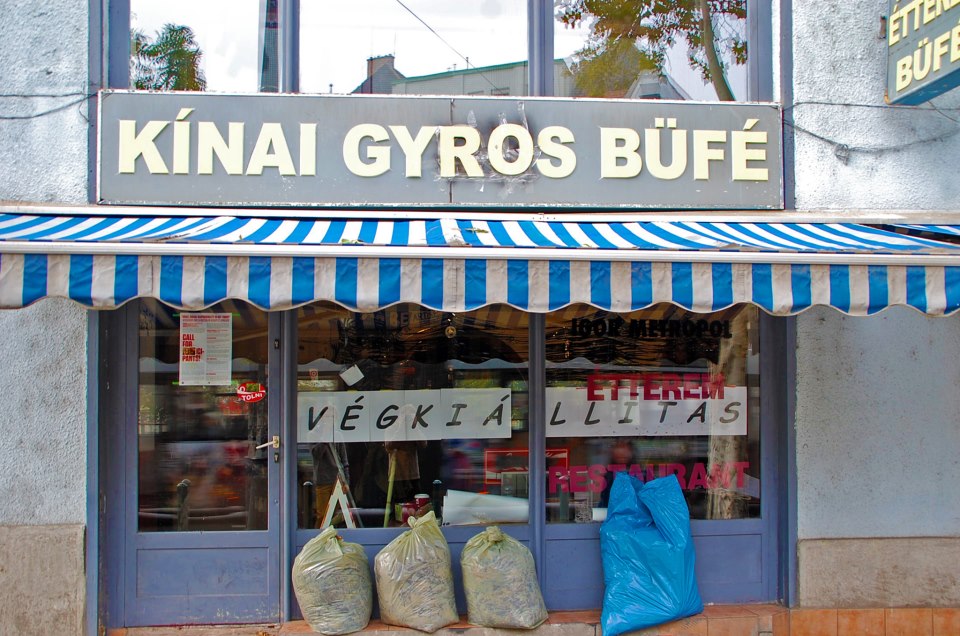The project SRIAT: Social Responsibility in Art Today was organized by Igor Metropol Association in collaboration with the Intermedia, the Art Theory and Curatorial Studies Departments and TransPraxis – International Center for Art and Theory, of the Hungarian University of Fine Arts in Budapest.
Due to the current political situation in Hungary, the topic of art + social responsibility seemed more urgent and relevant than before. The project enabled the exchange of German and Hungarian perspectives, but also encouraged young people to deal with the role of the artist in society and its impact on socio-political processes. The discussion of the social responsibility was reflected on three different formats: a public discussion, a workshop and an exhibition. The workshop was be held by German artist Thomas Kilpper. Following an open call, 12 participants from Hungary and abroad were selected to participate in the 2 week workshop, which resulted in an exhibition presented in Budapest.
Project-documentation:
1. SRIAT Discussion: “An Appeal for an Alternative”
Wednesday, October 24th, 6.30 p.m., at the Ludwig Museum – Museum of Contemporary Art
Participants: Miklós Erhardt (Vienna/Budapest), Lilla Khoór (Budapest), Thomas Kilpper (Berlin), János Sugár (Budapest)
Moderated by: Szilvia Nagy (Budapest)
The title of the roundtable-discussion reflects upon Beuys’ call to artists to take action in shaping society the society. Though his views are based on the ‘70s institutional critique, the underlying questions repeatedly get into the focus of the artistic discourse: nowadays mostly through the critical analysis of political, social and economical changes.
The roundtable discussion introduced and questioned different artistic positions on the topic of art + social responsibility and investigated, how the critical approach of an artist is transformed into artistic practice. What does Beuys’ concept of “Social Sculpture” mean in this context? May or should the society be shaped through art? How can an artist act responsibly toward the community? Local and global perspectives were highlighted and discussed.
2. SRIAT workshop
October 24th – November 5th, 2012
Budapest 1114, Bartók Béla út 29.
We invited the German artist Thomas Kilpper to hold a 2 week practice-oriented workshop questioning the complex role(s) of artists within current societies. Freedom of Expression, Activism in Art, Socially Engaged Art and it’s relevance within the art (world) is not only a matter in Hungary with its current developments, but also a global and general topic on contemporary art. Based on the experiences of recent projects by Kilpper, such as the “Pavilion for Revolutionary Free Speech” at the 54. Venice Biennial or the “State of Control” at the former GDR State Security Headquarter, the starting point of the workshop will be the topic of “Freedom of Speech” in democratic and other constructions of society. The group researched and developed different strategies of artistic involvement within these systems, starting with a field study in the public space of Budapest on October 23rd, National Holiday of commemorating the Hungarian Revolution of 1956. Developing new and experimental art-practices, the result of the collaborative work was shown in a public exhibition. Working and exhibition space of the project was an ex-Chinese restaurant in the new emerging cultural street, Bartók Béla út, in a house, which also used to be the home of László Almásy. The unusual location also provided material for artists interested in site specific projects.
During the workshop period, there have been meetings with Hungarian artists Miklós Erhardt and Gabriella Csoszó. These internal meetings gave the opportunity to get acquainted with their artistic approach, to support the exchange of artistic perspective in an informal and personal way. Furthermore a group of volunteers was working on researches about different art works and projects related to the topic. The results have also been presented during the workshop.
3. SRIAT Exhibition: “At Wang’s”
Opening: November 5th, 6 pm, at Bartók Béla út 29, Budapest
Opening times: November 6th – 17th, 4 pm – 7 pm, 2012
Participating artists:
Mike AINSWORTH (UK), SÓS József, ZÉKÁNY Dia, Aubrey RAMAGE LAY (USA), Davor PAPONJA (BiH), Laura ARENA (USA), LEVKO Esztella, ERLICH Gábor, KIS Judit, PÁLINKÁS Bence György, BOGYÓ Virág (PR Csoport), Hódi Csilla (PR Csoport)
The workshop was held by Thomas KILPPER (DE).
The public exhibition shown the results of the workshop including the works of young artists and students realized in collaboration with Thomas Kilpper. The project space itself represented the processuality of the past two weeks and hosted several artworks and sketches emerged during this time. Display of the videos were hidden corners of the “bunker”, Documentations of the interventions in the public space are integrated into a kinetic installation occupying the central space. Made out of discarded cassette and video tapes, the display system itself incorporates the DIY-strategies of political and civil activism. On the opening night the participants introduced a video work, created by collecting random video-strips and gluing them together for a new moving image. Using this magnetic media, unlike to celluloid tape, the content of these strips stayed invisible during work, enabling connotations on observation and blind censorship.
During the opening night some of the artist, dressed in protective clothing and the stretch-wrap used on the public sculptures during the interventions, started to whiten their own sketches on the walls of the exhibition space. The gesture of covering the murals and creating a white cube exhibition space can be understood as an act of self-critic or self-censorship: motives of pure activism have been deleted.
Motivated by the project’s setting in an old Chinese restaurant, the participants wanted to engage with the idea of Chinese cuisine in Budapest. On the opening night of the exhibition, connected to the video of Judit Kis, it’s protagonist,Tao cooked a traditional Chinese soup for the visitors. This soup would normally be cooked with dove flesh. In resonance with a belief in the political nature of food, and also the formative powers of eating together, the soup-without-doves is the meeting of cultures.
SRIAT has been realized in collaboration with and kind support from::
Intermedia Faculty / Magyar Képzőművészeti Egyetem (Hungarian University of Fine Arts), Ludwig Múzeum Budapest, ifa – Institute for Foreign Cultural Relations (Germany), NKA – Nemzeti Kulturális Alap (Hungary)

